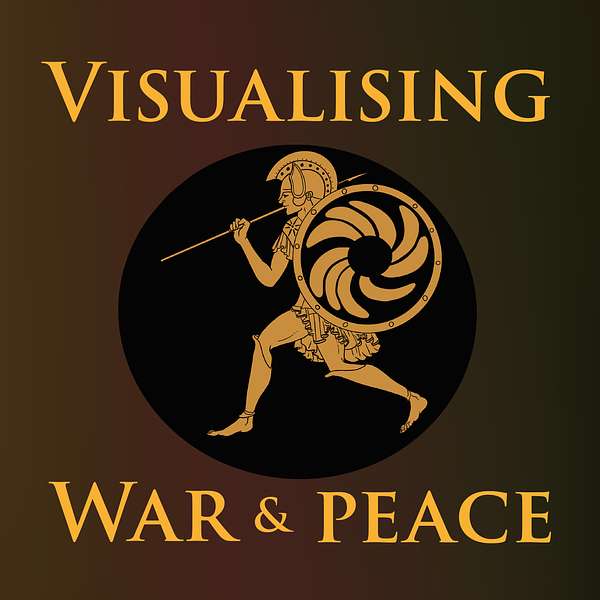
Visualising War and Peace
How do war stories work? And what do they do to us? Join University of St Andrews historian Alice König and colleagues as they explore how war and peace get presented in art, text, film and music. With the help of expert guests, they unpick conflict stories from all sorts of different periods and places. And they ask how the tales we tell and the pictures we paint of peace and war influence us as individuals and shape the societies we live in.
Visualising War and Peace
Migration, Mobility and Place with Elena Isayev
Use Left/Right to seek, Home/End to jump to start or end. Hold shift to jump forward or backward.
This episode continues our exploration of forced migration by discussing ancient concepts of mobility, migration and place with Prof. Elena Isayev. An ancient historian by training, Elena's early research focused on social organisation and mobility in southern Italy from the 4th to the 1st centuries BC. She has since drawn on that deep history to apply a ‘long durée perspective’ to contemporary understandings of mobility, migration, displacement and belonging.
Elena has published a wide range of books and articles, including Migration, Mobility and Place in Ancient Italy (2017), a volume with Evan Jewell, Displacement and the Humanities, and the ground-breaking article 'Between hospitality and asylum: a historical perspective on displaced agency'. She has founded or contributes to a range of interdisciplinary projects which experiment with new conceptual frameworks for visualising migration in order to influence policy-making and practice in the 21st century. These include Routes, Imagining Futures, Campus in Camps, and the Al Maeisha project. Her research has been influential in shifting habits of viewing, imagining and representing displacement, refugees, asylum-seekers and mobility as an experience.
During our conversation, Elena shared valuable insights into ancient experiences and discourses of migration. As she argues, ‘a high level of human mobility was not exceptional among Mediterranean communities. Indeed, it was built into the way that society functioned...'. Building on this, she unsettles all sorts of modern assumptions. We discuss the language used in different periods and places to define (and sometimes exclude or demonise) people on the move. In talking us through the ancient Greek concept of xenia (hospitality), Elena asks important questions about networks of connection, reciprocity, interdependence, moral responsibilities, shifting definitions of sovereignty, and why some migrants were/are seen as 'threats'. Along the way she makes important points about changing concepts of space and place. Unsurprisingly, migration was conceived differently in a time before formal borders; similarly, belonging and inhabiting were conceptualised and experienced differently, which in turn shaped how 'inside(rs)' and 'outside(rs)' were perceived.
We talk about a range of forced migrants: slaves, people fleeing war, people displaced by environmental crises. Elena explains that our ancient sources spend relatively little time reflecting on their fates. Even so, she is able to dive into texts that show how ancient asylum-seekers appealed to different people and places, and to reflect on the various ways in which they were treated, and how hospitality was politicised. Elena draws parallels between ancient asylum-seekers waiting in the liminal spaces of Greek sanctuaries, who had to be resourceful in appealing to potential hosts, and long-term inhabitants of refugee camps in Palestine, who challenge their existence as liminal, employing ‘innovative, influential, exceptional politics' to expose the refugee camp not as external to society but part of its making. To find out more, please visit our project website.
Music composed by Jonathan Young; sound mixing by Zofia Guertin